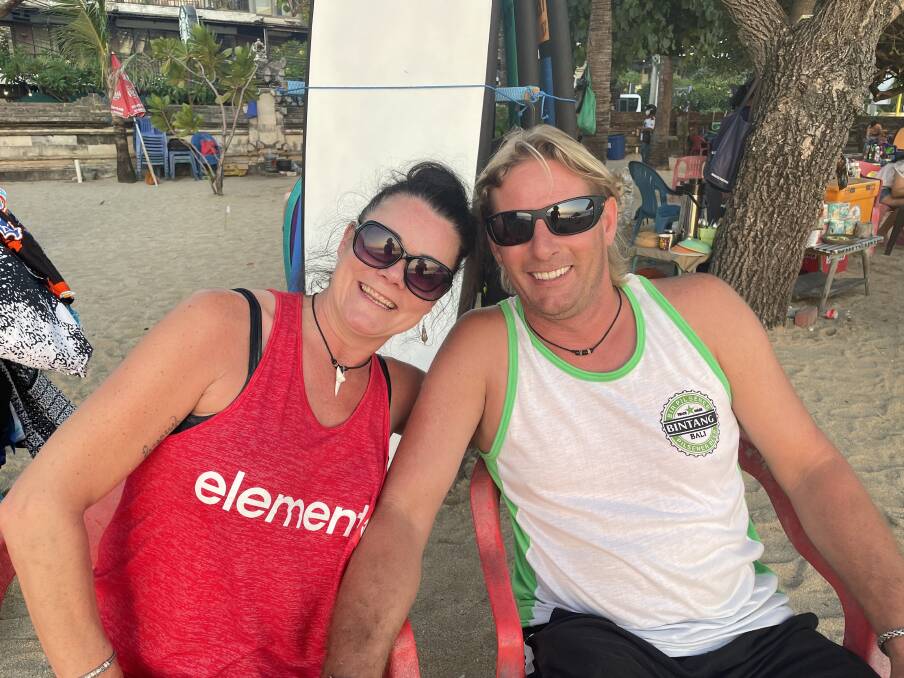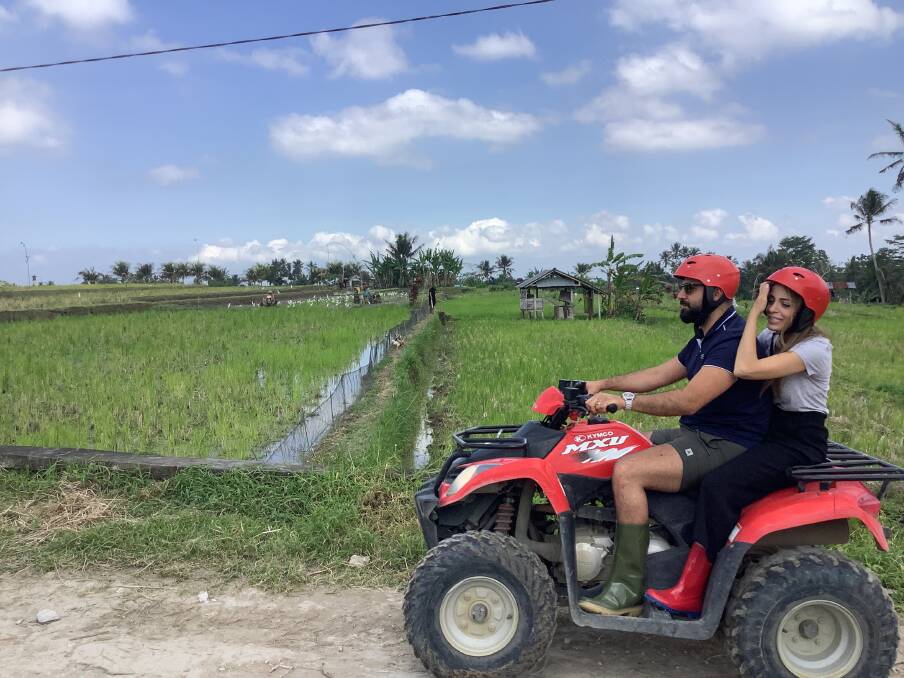IF it weren't for all the people wearing face masks in the heart of Bali's most popular beach town of Kuta, it would be difficult to remember that the COVID-19 pandemic almost crippled the Indonesian holiday island.
Australian tourists have been streaming back to Bali since flights resumed in March. More than 120,000 people travelled to the island from Australia in June.
For two years, Bali was effectively off limits for Australian holidaymakers as international borders were closed in an effort to contain the spread of coronavirus.
But, as the locals say, "Bali is back open for business".

Kuta taxi drivers and hotel operators describe the influx of Australian tourists as "life saving" following two years of crippling restrictions that cost many Balinese their jobs and left them struggling to survive with little government assistance.
Driver Vios Suarsana described Bali as "like a ghost town" without Australian tourists.
"Me and a lot of people had to go away to find work on farms because there was just no one here," he says. "We are all so happy to see Australians return, we are very close and we need you here to survive."
It's unknown what impact the discovery last month of the highly contagious livestock disease foot and mouth will have on the rising tourist numbers, which sat at 1.23 million Australian visitors in 2019 before the pandemic.

Vios says tourist operators are just getting back on their feet and can't afford another major scare for travellers.
Ange Roulestan is on her seventh trip to Bali and Kerstan Unsworth his first. The Tasmanian couple are aware of the foot and mouth outbreak in Indonesia and plan to ditch their thongs and have their clothes cleaned before returning home.
"It's pretty simple really," says Ange, as she watches the sunset on Kuta beach. "If we all do the right thing there won't be a problem. We've spent too long not being able to get here. I have no idea why anyone would want to risk further restrictions."

About an hour north of Kuta, at Taro Village, in Gianyar, visitor numbers to Bali's legendary albino cattle sanctuary have not fully recovered since the pandemic.
Farmer Wayan Rodi, who looks after 62 albino cattle, says tourist numbers are slowly increasing each week.
READ MORE:
Taro is relatively untouched by the sight-seeing machine, apart from an elephant safari park, some private villas and a handful of accommodation huts.
Wayan explains that the albino cattle, owned by the government, are used for official ceremonies and were vaccinated against foot and mouth just days before we arrived.

Taro's white cows are protected and believed to possess medicinal properties in what they secrete. Urine, faeces, even sweat is commonly blended with other things and believed to heal a range of ailments including arthritis and upset stomachs.
Wayan says the white cattle are "precious" to the Balinese and are cared for at the sanctuary until they die.
"We know it is very bad," Wayan says of the foot and mouth disease outbreak across Indonesia. "We try to protect them here so they stay safe."

